
Researchers in Japan have tested a novel vaccine in mice that targets inflamed brain cells linked to Alzheimer’s disease. The vaccine improved behavior and reduced inflammatory markers and amyloid deposits in mice, raising hopes for potential human application in modifying or even preventing Alzheimer’s disease.
A vaccine that targets inflamed brain cells associated with Alzheimer’s disease could possibly modify or prevent the disease, according to preliminary research.
- A novel vaccine that targets a protein involved in Alzheimer’s disease helped eliminate toxic cells in mice with the condition.
- After vaccination, the mice had fewer amyloid plaques and less inflammation in brain tissue and showed improvement in behavior and awareness.
A novel vaccine that targets inflamed brain cells associated with Alzheimer’s disease may hold the key to potentially preventing or modifying the course of the disease, according to preliminary research presented at the American Heart Association’s Basic Cardiovascular Sciences Scientific Sessions 2023. The meeting is in Boston, July 31–August 3, 2023, and offers the latest research on innovations and discovery in cardiovascular science.
Previously, researchers at Juntendo University Graduate School of Medicine in Tokyo, Japan developed a vaccine to eliminate senescent cells expressing senescence-associated glycoprotein (SAGP) — a senolytic vaccine that improved various age-related diseases including atherosclerosis and Type 2 diabetes in mice. Another study also found that SAGPs are highly expressed in glial cells in people with Alzheimer’s disease. Based on the findings from these studies, the researchers tested this vaccine in mice to target SAGP-overexpressed cells to treat Alzheimer’s disease.
Alzheimer’s Research and Test Results
“Alzheimer’s disease now accounts for 50% to 70% of dementia patients worldwide. Our study’s novel vaccine test in mice points to a potential way to prevent or modify the disease. The future challenge will be to achieve similar results in humans,” said lead study author Chieh-Lun Hsiao, Ph.D., a post-doctoral fellow in the department of cardiovascular biology and medicine at Juntendo University Graduate School of Medicine in Tokyo. “If the vaccine could prove to be successful in humans, it would be a big step forward towards delaying disease progression or even prevention of this disease.”
In this study, the research team created an Alzheimer’s disease mouse model that mimics a human brain and simulates amyloid-beta-induced Alzheimer’s disease pathology. To test the efficacy of the SAGP vaccine, the mice were treated with a control vaccine or the SAGP vaccine at two and four months old. Usually, people in the late stage of Alzheimer’s lack anxiety, which means they are not aware of the things around them. The mice who received the vaccine had anxiety, which means that they were more cautious and more aware of things around them – a sign researchers say could indicate a lessening of the disease. In addition, several inflammatory biomarkers of Alzheimer’s disease were also reduced.
Key Findings
The study found:
- The SAGP vaccine significantly reduced amyloid deposits in brain tissue located in the cerebral cortex region, which is responsible for language processing, attention, and problem-solving.
- The astrocyte cell (the most abundant type of glial cell in the brain and a specific inflammatory molecule) was shown to be decreased in size in mice receiving the vaccine. A reduction in other inflammatory biomarkers was also seen, implying that inflammation in the brain improved in response to the SAGP vaccine.
- A behavior test (maze-type device) on the mice at six months old revealed that those that received the SAGP vaccine responded significantly better to their environment than those who received the placebo vaccine. The SAGP-vaccinated mice tended to behave like normal healthy mice and exhibited more awareness of their surroundings.
- The SAGP protein was shown to be located very near to specialized brain cells called microglia, which play a role in the immune defense of the central nervous system. Microglia help clear damaging plaque formed by proteins; however, they also trigger brain inflammation that can damage neurons and worsen cognitive decline in a person, which could be one of the causes of Alzheimer’s disease development.
Alzheimer’s Disease Mechanism
In Alzheimer’s disease, an accumulation of brain proteins called amyloid beta peptides clump together forming plaques that collect between neurons and disrupt cell function, according to the National Institute on Aging, a division of the National Institutes of Health.
Vascular problems may also lead to a breakdown of the blood-brain barrier, which usually protects the brain from harmful agents while allowing access for glucose and other necessary factors. This faulty blood-brain barrier prevents glucose from reaching the brain and prevents the clearing away of toxic beta-amyloid and proteins, which results in chronic inflammation and Alzheimer’s disease progression.
Concluding Remarks
“Earlier studies using different vaccines to treat Alzheimer’s disease in mouse models have been successful in reducing amyloid plaque deposits and inflammatory factors, however, what makes our study different is that our SAGP vaccine also altered the behavior of these mice for the better,” Hsiao said.
According to the researchers, previous research suggests that the SAGP protein is highly elevated in microglia, which means that microglia are very important cells to target in Alzheimer’s disease. Hsiao said, “By removing microglia that are in the activation state, the inflammation in the brain may also be controlled. A vaccine could target activated microglia and remove these toxic cells, ultimately repairing the deficits in behavior suffered in Alzheimer’s disease.”
According to the 2023 American Heart Association Statistical Update, about 3.7 million Americans, ages 30 years and older, had Alzheimer’s disease in 2017, and this number is projected to increase to 9.3 million by 2060.
BCVS is one of the largest meetings in the world dedicated to fundamental and translational research to improve heart health, a goal that the pandemic has only made more critical. Presented by the American Heart Association’s Basic Cardiovascular Sciences Council, the 2023, in-person conference attracts leading researchers in fields such as microRNAs, cardiac gene and cell therapy, cardiac development and also includes tissue engineering and iPS cells.

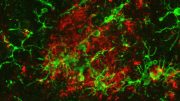
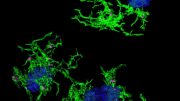
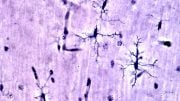
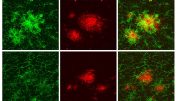
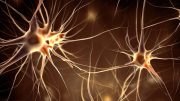
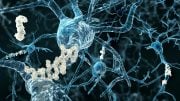
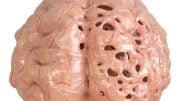
Be the first to comment on "Innovative New Vaccine May Hold Key To Treating and Preventing Alzheimer’s Disease"